

The input transaction data for JMS must be in the XML format specified by CA Continuous Application Insight.
JmsMessages Tag
JMS message begins with a <JmsMessage> tag and ends with a matching </JmsMessage> tag. JMS messages can contain child JMS messages.
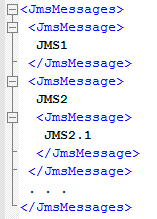
MessageMethod and MessageClass Tags
The <MessageMethod> tag is used to specify the message method. The valid message methods are send, receive, and onMessage. When the tag is missing, the default value is send.
The <MessageClass> tag specifies the message class. The only valid message class is javax.jms.TextMessage. When the tag is missing, the default value is javax.jms.TextMessage.
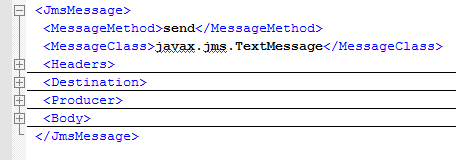
Headers Tags
The <Headers> tag specifies the message headers. The valid headers are JMSCorrelationID, JMSDeliveryMode, JMSExpiration, JMSMessageID, JMSPriority, JMSRedelivered, JMSTimestamp, and JMSType.
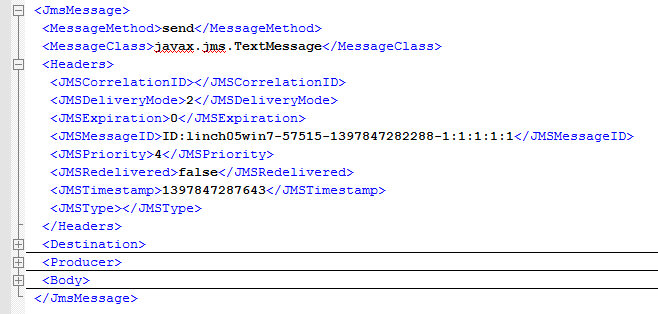
Destination Tags
The <Destination> tag specifies the message destination. The valid destination is a JNDI destination (a JNDI-registered Queue or Topic). JMS message with the send method will specify the message destination.
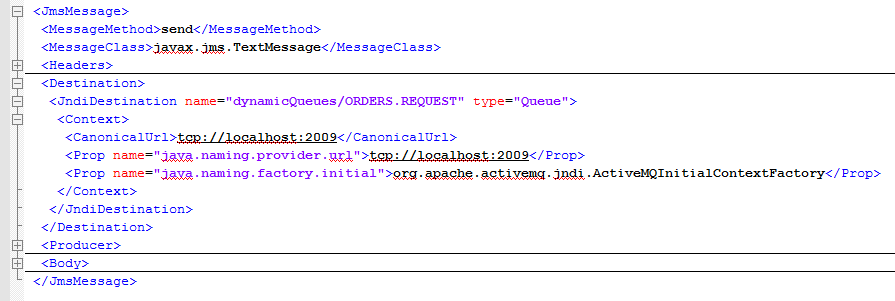
Producer Tags
The <Producer> tag is used to specify the message producer. The Producer can contain a Destination (JNDI) and a Session. The session contains the session information (Transacted, AcknowledgeMode) and a Connection Factory (JNDI). JMS message with the send method will specify the message producer.
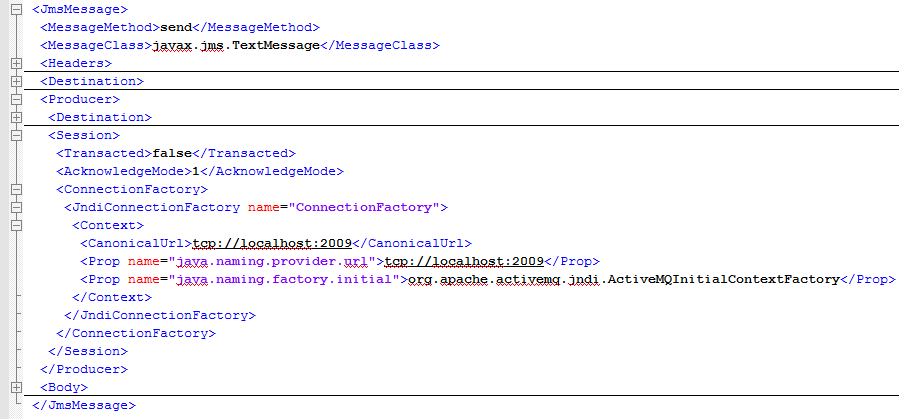
Consumer Tags
The <Consumer> tag is used to specify the message consumer. The Consumer has the same structures as the Producer. JMS message with the receive/onMessage method will specify the message consumer.
Body Tags
The <Body> tag is used to specify the message payload (text). If the text payload itself contains the XML tags, the text payload must be inside a CDATA section. The payload is ignored by the parser.
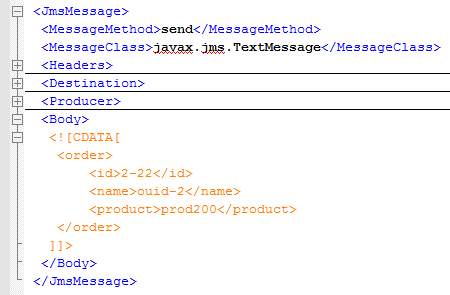
|
Copyright © 2014 CA Technologies.
All rights reserved.
|
|